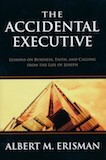Your Work Contributes to the Kingdom of God
Daily Reflection / Produced by The High Calling
Then the family heads of Judah and Benjamin, and the priests and Levites—everyone whose heart God had moved—prepared to go up and build the house of the Lord in Jerusalem. All their neighbors assisted them with articles of silver and gold, with goods and livestock, and with valuable gifts, in addition to all the freewill offerings.
Ezra 1:5-6
In 587 BC, the Babylonians, under the rule of King Nebuchadnezzar, conquered Jerusalem. They killed the leaders of Judah, plundered the temple before burning it to the ground, destroyed much of the city and its walls, and took the cream of Jerusalem’s crop of citizens to Babylon. There, these Jews lived for decades in exile, always hoping for God’s deliverance and the restoration of Israel. Their hopes were heightened in 539 BC when Persia, led by King Cyrus, overthrew Babylon. Shortly thereafter, Cyrus issued a decree inviting the Jews in his kingdom to return to Jerusalem and rebuild the temple and, therefore, their life as God’s people (Ezra 1:1-4).
The book of Ezra was originally the first part of a single work that included the book of Nehemiah. Together, these books narrate crucial aspects of this rebuilding story, beginning with the edict of Cyrus in 539 BC. Their purpose, however, is not simply to describe what happened long ago out of antiquarian curiosity. Rather, Ezra and Nehemiah use historical events to illustrate the theme of restoration. These books show how God once restored his people and how people played a central role in this work of renewal. Ezra and Nehemiah were written by an unknown author, probably in the fourth century BC, to encourage the Jewish people to live faithfully even under foreign rule, so that they might be participants in God’s present and future work of restoration.
From the beginning of Ezra, the decree from King Cyrus of Persia introduces us to one of the principal themes of Ezra-Nehemiah: the relationship between God’s work and human work. Cyrus made his proclamation “that the word of the Lord by the mouth of Jeremiah might be accomplished” and because “the Lord stirred up the spirit of King Cyrus” (Ezra 1:1). Cyrus was doing his work as king, seeking his personal and institutional ends. Yet this was a result of God’s work within him, advancing God’s own purposes. We sense in the first verse of Ezra that God is in control, yet choosing to work through human beings, even Gentile kings, to accomplish his will.
Both Ezra and Nehemiah were called to restore God’s kingdom (Israel), in the midst of a partially hostile, partially supportive environment. Today’s workplaces are also partially hostile and partially supportive of the work of God. This encourages us to work out how our work may contribute to implanting God’s kingdom in today’s world.
QUESTIONS FOR FURTHER REFLECTION: How does your workplace support the work of God—either explicitly or implicitly? What does your workplace do that may hinder to the work of God? As God builds his Kingdom through your workplace, what gifts are you bringing to his efforts?
PRAYER: Dear God, thank you for continuing to work in the world—whether the world supports you or not. Thank you for giving us opportunities to come alongside your work and serve you. Help us not to lose heart when others seem hostile to your Kingdom and your principles. We know that every human organization will fall short of your perfect will. Help us to acknowledge these shortcomings in ourselves and our workplaces without becoming discouraged. But more than that, help us to focus on the good—the good people, the good systems, and the good products and services that you are using to reveal your Kingdom to the world. Amen.
P.S. from Mark: This week I'm taking a short break from our devotional study of Ephesians to focus on issues related to our work as Christians. The following reflections are based on an article I did for the Theology of Work Project which investigated what the Old Testament books of Ezra, Nehemiah, and Esther teach us about our work. I highly recommend the Theology of Work Project website. It provides a unique resource for Christians who are wanting to make connections between their faith and their daily work. I also want to thank my colleague, Marcus Goodyear, for helping me to produce our reflections for this week.
Image courtesy of Laity Lodge, one of our sister programs in the Foundations for Laity Renewal.






